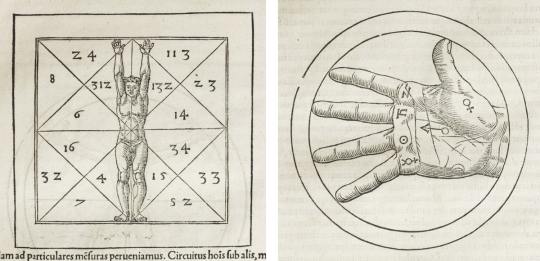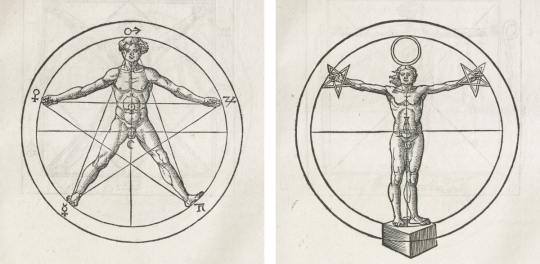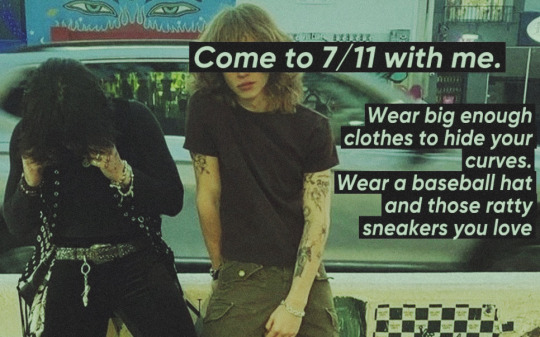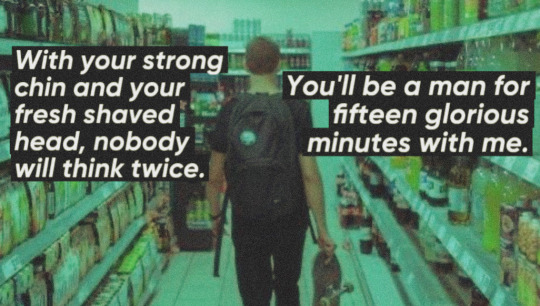Text
we teach girls to shrink themselves, to fit themselves more compactly in a transistor. we expect girls to double in processing efficiency every two years. we say to sufficiently advanced girls, you are indistinguishable from magic
25K notes
·
View notes
Text
23K notes
·
View notes
Text
Congratulations! You are now a Magic-User!!
2K notes
·
View notes
Text
guys I just found the greatest video on the internet
63K notes
·
View notes
Text

i love you people i love this site i wish slutweed was real
40K notes
·
View notes
Text
Cocaine was a stimulant used by a priestly caste of the middle period United States called businessmen in order to commune with The Market. [1]
30K notes
·
View notes
Text
enough about taylor swift already. reblog and tag the smallest, least known artist you listen to
23K notes
·
View notes
Text
hold on. Was suck him good and hard through his jorts supposed to conjour the image of someone who has an unzipped fly because this entire time I've been imagining someone slurping on wet denim
51K notes
·
View notes
Note
ct. you know many thimgs. can you teach me what a "prostate orgasm" is & how to get one
So back in the middle ages, many magicians felt that the world was primarily ruled astrologically. The planets, the moon and the sun, and signs of the zodiac, were all a sort of heavenly language that God used to administer the world.
The evidence for this was the similarities of things. The sign of cancer looked like a crab, therefore it ruled over crabs, and all things like crabs. So the sign of cancer was connected in some way to any thing reclusive, hard-shelled, furtive, and self-reliant. This idea, that the star signs and planets are connected to qualities on earth, is known as "The Doctrine of Signatures."
This extends to the body! Check out this image from De Occulta Philosophia, in which Agrippa shows which star signs rule over which elements of the body.

(yes that diagram on the left is what horoscope charts used to look like.)

This diagram is from the 1500s. Take note of the planetary associations on the left here. The core of the body is associated with the sun, but the genitals, the genitals are lunar. (Because they ebb and flow like the tides as they get excited.)
Humorously, but also as significant magical commentary, Alieststair Crowley would extend this conception of the Magical Solar Internal Core of the body to the idea that the butthole was therefore also solar in nature. This was both simply a logical extension of Agrippas magical theories, and a clever jab at traditional religious institutions. (The Christian god is often considered astrally solar in nature.)
He combined this with alchemical doctrine --in which the uniting of the sun and moon is popular imagery-- and came to the conclusion that penis-in-butthole sex was one of the most magically potent things a person could do.
3K notes
·
View notes
Text

They're going crazy on LinkedIn
23K notes
·
View notes
Text
if you told vin diesel fast and the furious you were gay he'd be like "Some people like driving stick…some people like driving automatic…what matters is you cross the finish line.." and then he'd rev up a dodge challenger and drive through a building and kill 16 people
125K notes
·
View notes
Text
If I ask nicely will people reblog this and tell me what their most common breakfast is? Not your favorite necessarily, just what you have for breakfast most frequently? 🙏🏽
25K notes
·
View notes
Text
wouldn’t it be funny if mary magdalene was like i hang out with dudes because it’s less drama and then all that happened
56K notes
·
View notes
Note
#if you ask I will write a whole goddamn essay on Boromir #and why his death means more to us as we get older *whispers* babe I want the essay
Why must you always enable me I love it never stop. So. Wow. Where to even start. I rant through my tears about how much I love Boromir every time I watch Lord of the Rings, which I do about once a year with @captainofthefallen. Every time I watch it, his death means more to me, hits me harder, and I think that’s because the older we get, the more we identify with Boromir.
Here’s the thing. In all honesty, as a kid (I first read LotR when I was eleven, first watched the films at that age as well), I wasn’t too fond of Boromir. Oh I liked him all right, he was fine I suppose, but I didn’t connect with him. I was angry when he tried to take the One Ring from Frodo, and I cried a little at his death because death is sad and I was a kid, but it didn’t devastate me.
Because as a kid? I wanted to be Aragorn. The reluctant king who rises up and does the right thing, always. The guy who gets the amazing (be still my bi heart) Arwen, the Evenstar, fairest of the elves. The guy who literally kicks ass. The man who is noble, honorable, thoughtful, good with his words, humble, knows the burdens of leadership, who stands up and says there will be a day when the courage of men fails, but this is not that day.
I wanted to be the hero.
I noticed this trend among my peers growing up. We all loved Aragorn and wanted to be him. Boromir was sort of dismissed.
But then a funny thing happened, called getting older.
I got older, and I fucked up.
I got older, and depression hit.
I got older, and the weight of societal expectations, of being an older sibling, of adult responsibilities, of legacy, of family secrets, of family history, all settled on my shoulders.
I got older, and I learned that men are not always honorable, or kind, or humble, or the leaders they should be. And I learned how hard and desperate it is to continue to believe in the strength of men.
I got older, and I learned how temptation comes for us all, in different forms, and how we hurt people without meaning to, and how sometimes for all our regret and tears and apologies, we cannot mend what we broke.
I got older, and I leaned what it is to be forced into a role I didn’t want, to feel I’d hit a dead end, to struggle against those who had different views, to feel like people could look into my heart and see the anger and fear that I tried so hard to hide.
I got older, and I realized: I’m Boromir.
We’re all Boromir.
Tolkien was very deliberate with his characters. They aren’t just characters, flawed and wonderful though they might be. They also each represent something very specific. Aragorn represents the Ideal. The hero that we all can be, the hero that we should strive to be, the vision of mankind as we are supposed to be, if only we can let ourselves shed our hubris and our doubts. Aragorn represents who we should be.
Boromir represents who we are.
Flawed, frustrated, burdened, tempted, struggling, setback, good intentioned, afraid, angry, kindhearted, noble, loyal, and painfully, beautifully human.
Boromir went to the Council of Elrond reluctantly. He shouldn’t have gone. Boromir is a war leader, as we learn after his death. He successfully fought for and defended Gondor from Mordor for years. That’s where he belongs. Faramir is the quiet one, the diplomat, the “wizard’s pupil,” the soft-spoken and patient one. Note that even in the film version, which shows a differently characterized Faramir than in the books (Tolkien heavily based Faramir on himself), Faramir only wants the One Ring in order to give it to his father and win his father’s pride and affection–he doesn’t want it for himself.
If Faramir had been at the Council and Boromir had stayed in Gondor, everything would have gone differently, and possibly for the better.
But the Steward of Fuckwits aka Boromir and Faramir’s father decides he wants Boromir to go, to represent their family, because Boromir is the son he values and is the “face” of Gondor. So Boromir sets aside what he wants, and he goes. And the whole time he feels out of place, feels like a fish out of water, feels second to Aragorn, feels lost, feels terrified his city will fall while he is gone, feels like the race of Men is being mocked and looked down on as weak.
How many of us as we grow up are stuck like that? We can’t fix our family (although we try), we can’t fix our broken country (although we try), we can’t get rid of the doubts and fears that whisper to us (although we try), and we can’t stop feeling like we’re constantly second best, constantly failing, looked down on, especially the millennial generation.
(Given what’s happening in the world right now, I wouldn’t be surprised if Tolkien found himself surprisingly similar in outlook and feeling to our generation. But that’s another topic.)
And of course that’s the key. Boromir–darling, frustrated, stuck, fatally flawed Boromir–is so very relatable because he tries. He tries to teach Merry and Pippin to protect themselves and then tries to save them and dies for it. He tries to convince Aragorn (who at that point is more elf than man in his outlook) that there is no reason to give up on his people, their people–and he succeeds in that, although he dies before he gets to see it. He tries to make his father proud. He tries to apologize when he fucks up. He tries and he fails, and he tries and he succeeds. And the most important things he does, the biggest seeds he plants, he never sees them flower.
Like my God, the man’s last words are I failed. I failed you, I failed Frodo, I tried to take the Ring. I’m sorry, I failed. That hits me so goddamn hard in my mid20s and it’ll hit me even harder when I’m older, I’m sure. How many times have we said that to people? “I tried to help him.” “I tried to reach out.” “I tried to apologize.” “I tried to stop them.” “I tried so hard.” I tried, I tried, I tried. For the job, for the friend, for everything, I tried.
And I failed.
I have a laundry list of things I tried and failed at, and God, do they hurt. Sometimes it was something out of my control, sometimes it was my own behavior. And that scene with Boromir, the flawed man, staring up at Aragorn, the ideal hero, and begging him, begging him, “save them, they took the little ones, find Frodo,” begging him for forgiveness, apologizing for his failures?
Talk about a fucking metaphor.
We make our ideals in literature so that we have something to look up to and strive for, for others to strive for. Boromir falls prey to the ring, but Aragorn does not. You did what I could not. Of course Aragorn did. He’s the ideal. And we beg our ideals to be better so they can show us the way and hopefully, maybe, someday, we can be like them.
I had so many heroes growing up, real and literary. Sara from A Little Princess. Aragorn. Lucy from Narnia. Nancy Drew. Harry Potter. And so many times I would look at myself in the mirror and cry because I knew, I knew if I stood in front of them they would be disappointed in me. I knew I wasn’t being the person I could be. I tried, I failed, I tried, I failed, but my God I swear, I tried.
As a kid or even a teenager, we still see mainly who we want to be. Our ideal. And I hope that we never lose sight of that. I love Aragorn and my God am I going to keep trying to be like him, and like all of my other literary heroes. We need those heroes, we need them so badly, and the darker the world gets the brighter we have to make them shine.
As an adult, though–as an adult, we start to see not only who we want to be, but who we are, and who we could’ve been, and how we failed to be, and the paths not taken and the paths that were lost. And that’s important too. Because Boromir died convinced he was a failure. Convinced he was, truly, the weakness we find in men.
And he was… but he wasn’t.
Without Boromir, Aragorn wouldn’t know what happened to Merry and Pippin or where they went. Without Boromir, Aragorn would’ve had no hope in the race of men. Without Boromir, who would have carried the hobbits up the cold mountain, or taught them how to fight, or said give them a moment, for pity’s sake! Who would have defended Gondor for so long, or loved his brother with a ferocity that Denethor’s abuse couldn’t knock loose, and inspired that brother to keep fighting even as the light faded and the night grew cold and long?
Aragorn carries Boromir’s bracers throughout the rest of the trilogy, right up to his coronation, where he is still wearing them as he is made King. Because Boromir might not have seen it–we might not see it–but we tried and we failed but we didn’t fail at everything. Lives are made brighter for our presence. The world is better for our gifts and our convictions. And no fight, even a fight lost, is done in vain.
The remains of the Fellowship ride to Gondor not just because it’s the Right Thing to Do, but because it is the city of their fallen brother, it’s Boromir’s home, the home that above all he gave everything to defend. Boromir doesn’t want the Ring for power, he wants it so his home will be safe, his family will be safe, and God who can’t relate to that, as we grow older and we see our families and friends attacked and scarred, as we have children and want them out of harm’s way. Who wouldn’t be tempted to seize the chance to keep them safe?
I see so much of myself in Boromir. And I take hope. I take inspiration. I cheer through my tears as he is hit again and again with arrows and each time he gets back up on his feet and grits his teeth and you can see him thinking not today. As a child I thought Boromir was selfish but as an adult I hear him use his last breath to apologize to Aragorn and call him his brother and his king and I see he’s more selfless than he ever gave himself credit for being. Boromir sees only his faults, but we can see what he doesn’t, we see his positive impact and we see his virtues, too.
Because as an adult I’ve failed, and I want to believe that like Boromir, I’ve also succeeded, I’ve also been more than just my faults–even if I can’t see that yet.
Aragorn is who we should be. But Boromir is who we are.
And my God, we should be proud of that. Because Boromir is a damn good person to be.
11K notes
·
View notes


